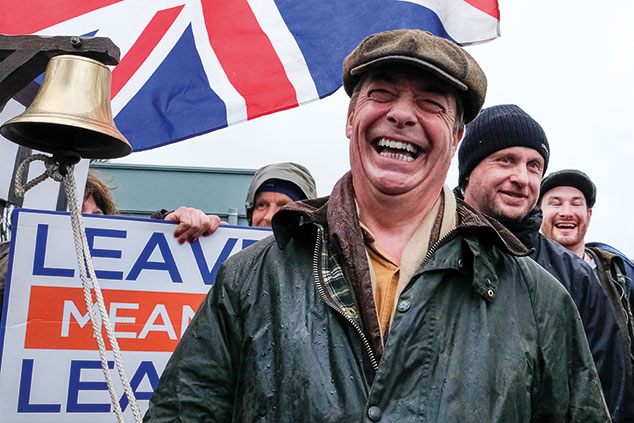
“And: breathe,” says Jon Henley in The Guardian. Two days before Britain could have been forced to leave the EU without a deal last week, the EU agreed that it could remain in the club until 31 October, with the option to leave earlier if Theresa May can secure support in the House of Commons for her deal.
The option to leave later than that appeared to be ruled out when the German foreign minister told the Financial Times that this time the deadline was final. May then sent MPs home for a ten-day Easter break, but continued with cross-party talks aimed at finding a consensus. As for what is going on in those cross-party talks, who knows, says Sebastian Payne in the FT. Downing Street has been sketchy on the specifics and there is no deadline for any decision to be made.
“Suspicions are rampant” that the talks will not lead to a deal and are instead about providing political cover for both sides – May hopes the threat of a softer Brexit will bring recalcitrant colleagues to heel; Corbyn is content to stall the whole process and avoid having to make a decision on a second referendum. But for now, it is in the interests of both parties to drag their feet. “Don’t expect any white smoke in the near future.”
Nigel Farage returns to the stage
But if MPs are relaxed about deadlines in that process, they are positively jittery about the prospect of elections to the European Parliament. The new Brexit deadline means that Britain will have to hold these unless MPs ratify May’s withdrawal agreement by 22 May. Both the Tories and Labour fear voters will revolt against the political establishment in the poll, says the FT. Tories are the most concerned, with senior figures predicting the party could suffer an electoral meltdown as voters protest against their failure to deliver Brexit.
Nigel Farage, on the other hand, is rubbing his hands. He is assembling a range of well-known candidates for his newly launched Brexit Party, and it has a decent chance of achieving its first goal of winning the most seats in the elections, says Lucy Harris in City AM. “There is a clear gap opening up in the political market for disillusioned Brexiteers – and Farage is placing himself smack bang in the middle of it.”
That gap in the market is worrying, says The Economist. “The far right is on the march.” Extremists groups have plotted and carried out acts of terrorism, and death threats are now commonplace for MPs. The distinction between far-right and mainstream discourse has “blurred” as “narratives embraced by extremists have become normalised over the past decade”. Yet attitudes to the rise of the far right, including among the political class, remain “complacent”.
It’s true that no far right party has achieved mainstream success in Britain, unlike in many other European countries. Under Britain’s first-past-the-post system, they are not able to win enough votes to gain representation. But elections to the European Parliament use proportional representation. “Fringe parties scent an opportunity.” And after “months of chaos in Westminster”, polls show that slightly more than half of voters would like a strong leader who is “willing to break the rules”.
Meanwhile, as cognitive bandwidth remains dominated by Brexit, new research shows that Britain is the only large advanced economy likely to see a decline in productivity growth this year, reports the FT. Business investment in the UK has stalled since the referendum, says Bank of England chief Mark Carney. “Despite the fact that balance sheets are clean, the economy has no spare capacity, monetary policy is accommodative, the labour market is incredibly tight – everything says invest, invest, invest, but there’s this extreme uncertainty,” he said. Expect that uncertainty to continue for some time yet.